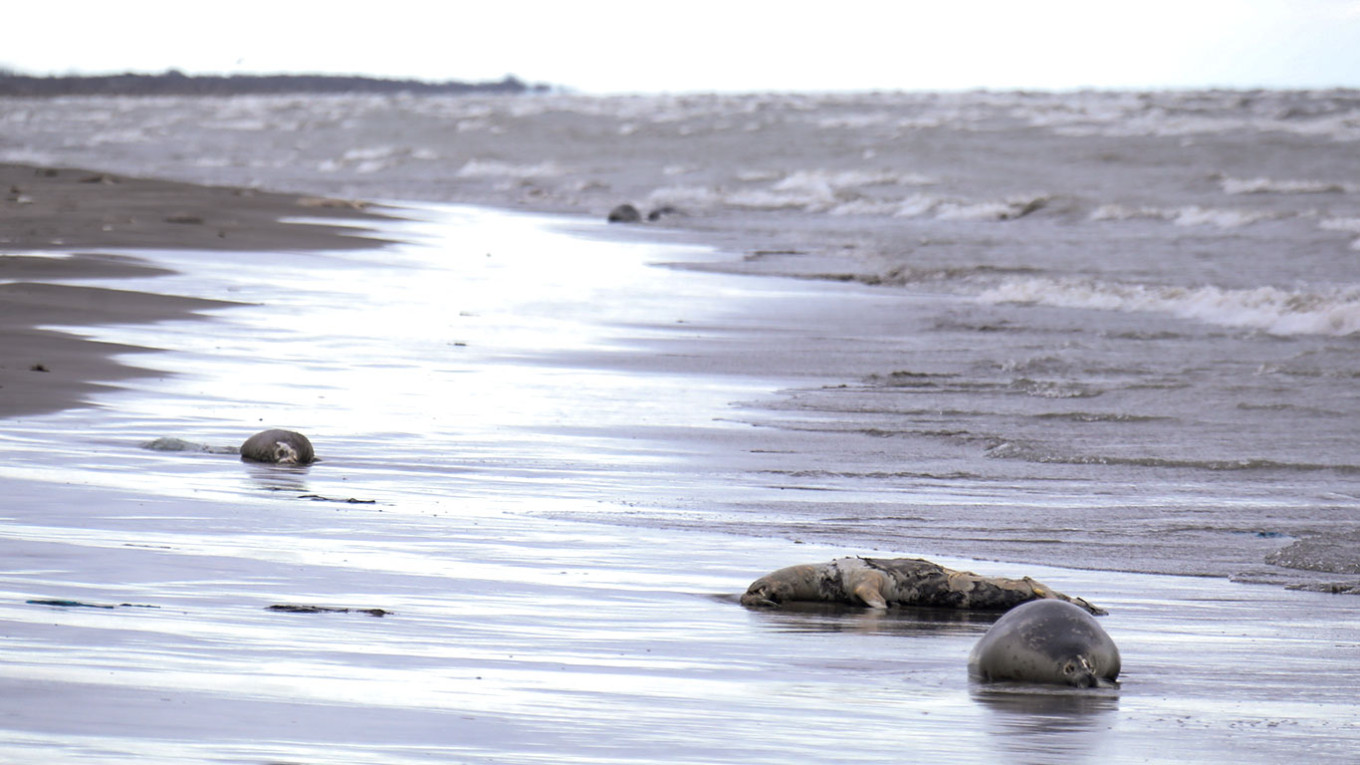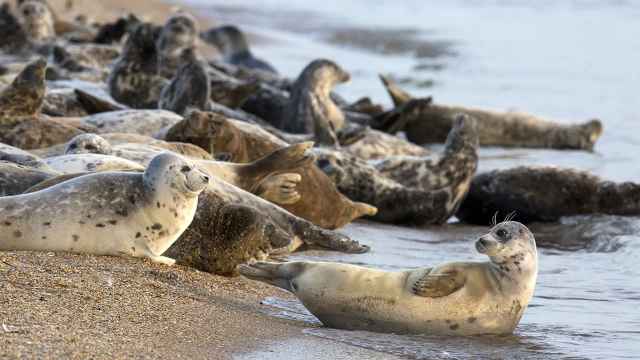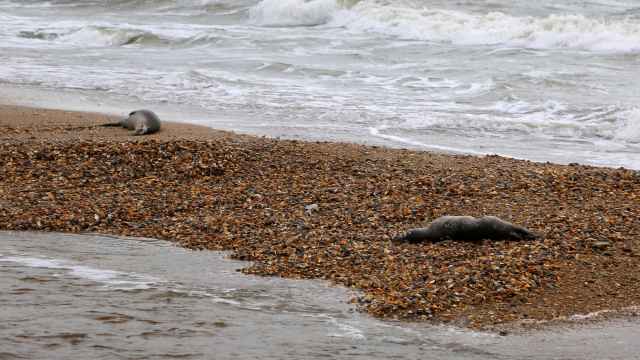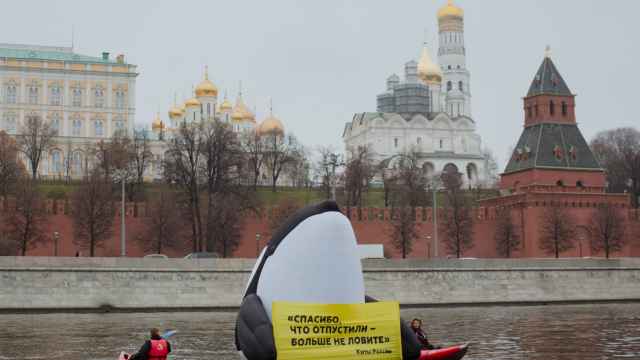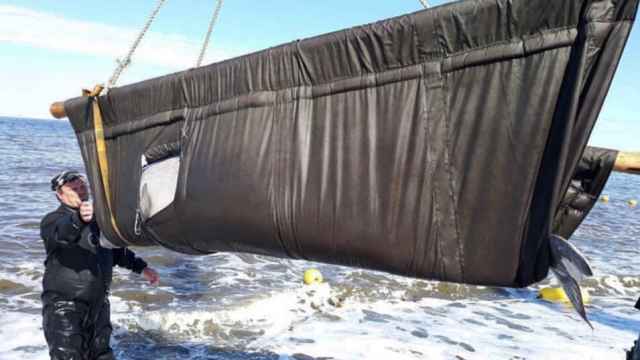At least 2,500 dead Caspian seals have been found on the shores of Russia’s Caspian Sea coast, local authorities said Sunday.
Photos published online showed the mammals' carcasses scattered across the beach.
The Russian republic of Dagestan’s natural resources ministry said the endangered seals had likely died of “natural causes,” adding that laboratory tests will further shed light on the mysterious deaths.
Zaur Gapizov, head of the Caspian Environmental Protection Center, said the seals may have died weeks ago and their overall number is likely higher.
“No signs of violent deaths or fishing nets were found,” the state-run RIA Novosti news agency quoted Gapizov as saying.
Samples from the seals’ internal organs did not show signs of pollutants, the Dagestan natural resources ministry said in a statement on the Telegram messaging app.
The Kommersant business daily cited a North Caucasus fisheries official as saying that the seals may have been killed by prolonged storms, while the Fontanka.ru news website reported that the mass deaths could have been caused by a natural gas leak from the resource-rich sea.
Many of the dead Caspian seals were discovered between the mouths of two rivers and one canal in the southern Russian republic.
The unexplained incident is believed to be the largest mass death of Caspian seals in recent years following the discovery of some 300 carcasses at various points in 2020-21.
After one of the discoveries last year, Russia’s fisheries agency reported that most Caspian seals had died from the “natural cause” of suffocation from the seafloor.
The latest die-off comes a month after fish inspection authorities in Kazakhstan, which also has a long Caspian coastline, discovered 141 dead Caspian seals on its shores.
Caspian seals, the only mammals found in the Caspian Sea, have been listed as endangered by the International Union for Conservation of Nature (IUCN) since 2008.
The Caspian seal population has dropped by 90% over the past century due to illegal hunting and climate change-driven declines in water levels, according to the UN.
Dagestan’s natural resources ministry estimates the population of Caspian seals at up to 300,000.
The Caspian Environmental Protection Center meanwhile places the total population of Caspian seals at fewer than 70,000.
Gapizov told RIA Novosti his center will seek state funding to count the Caspian seal population.
A Message from The Moscow Times:
Dear readers,
We are facing unprecedented challenges. Russia's Prosecutor General's Office has designated The Moscow Times as an "undesirable" organization, criminalizing our work and putting our staff at risk of prosecution. This follows our earlier unjust labeling as a "foreign agent."
These actions are direct attempts to silence independent journalism in Russia. The authorities claim our work "discredits the decisions of the Russian leadership." We see things differently: we strive to provide accurate, unbiased reporting on Russia.
We, the journalists of The Moscow Times, refuse to be silenced. But to continue our work, we need your help.
Your support, no matter how small, makes a world of difference. If you can, please support us monthly starting from just $2. It's quick to set up, and every contribution makes a significant impact.
By supporting The Moscow Times, you're defending open, independent journalism in the face of repression. Thank you for standing with us.
Remind me later.


